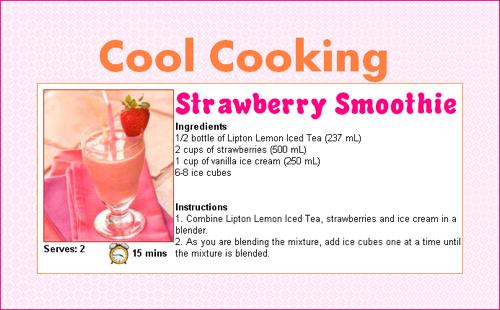








I am sure that you've all heard the phrase "Better safe than sorry." This phrase is especially applied in the summer when the weather is extremely hot. I, much like everyone else, strive to keep myself cool. Though my body can keep me cool by itself, I also have to assist my body. Ah, the faint smell of sweat! You see, our bodies keep us cool by releasing heat from the skin which causes us to sweat. Our bodies also evaporate this sweat. Nonetheless, there are weather conditions that can throw this delicate process of balance. These situations, also known as heat-related illnesses, can be extremely dangerous.
Dangers to Know and How to Heal Them:
Heat Cramps are painful muscle spasms caused by movement in humid weather. Heat cramps are not severe but they represent further pain if not dealt with immediately.
What to do - Relocate the person to somewhere cooler and place them in a comfortable position. Then, cautiously stretch the pained muscles. Also, replenish the person with at least half a glass of cold water every 5-15 minutes. Do NOT provide liquids that will further dehydrate the person. This includes alcoholic or caffeinated beverages.
Heat Exhaustion (also known as heat prostration) is caused by heavy exercise in hot temperatures. The body begins to sweat, causing one to lose their body fluids and become dehydrated. The symptoms of heat exhaustion are intense sweating, blurred vision, moist, pale or pink skin, headaches, nausea, vomiting, dizziness, fatigue and a chance of unconsciousness. However, the body temperature will not raise. Heat exhaustion is only temporary and rarely becomes fatal.
What to do - Take the person to a cooler location and place them in a relaxed position. Remove layered clothing or loosen fitted, tight clothing. Then apply cold, damp clothes to the person's body and forehead. Moreover, provide half a glass of cold water every 15 minutes if they are conscious. Be sure NOT to provide alcoholic or caffeinated beverages because they will worsen the condition. Phone 911 if the person refuses water, vomits, or becomes unconscious.
Heat Stroke (also called sunstrokes) occurs when one's body temperature control stops working. The body's temperature control system is what produces sweat to cool the body. Heat stroke is a life-threatening situation because the body's temperature can elevate so much so that it results in brain damage or death. Sometimes the temperature may rise to 105 degrees Fahrenheit! The symptoms of a heat stroke are burning, red skin, varies in consciousness, a rapid, faint pulse and hasty, shallow breathing.
What to do - Call 911 immediately!! Next, transfer the person to a cooler location and lay them down. Then, begin cooling the body. This would include giving the person a cold shower, placing damp cloths on the person's body (preferably on the large blood vessels - wrists, ankles, armpits, neck) and fanning them. Check for a pulse and make sure the person is breathing normally. Also, provide half a glass of cold water every 15 minutes if they are conscious. Do NOT give the person any food or drinks if they refuse to eat or if they are vomiting.
How to Prevent a Heat-Related Illness
The above dangers can be prevented in several ways:
1. Dress for the heat
Wear weightless clothing, preferably with light colours because they reflect the sun's rays. To protect your head and eyes, wear a hat or sunglasses. A "sun umbrella," called a parasol, is also helpful because it shades the body from the sun.
2. Drink plenty of water
Have a bottle of water or juice handy. Replenish yourself often, even if you do not feel thirsty. During the summer, water isn't solely used to quench thirsts. Stay away from alcoholic or caffeinated beverages because they dehydrate the body.
3. Eat snacks and eat as often as you can.
Do not eat foods that are high in protein because they increase the body's temperature.
4. Stay away from salt
Salt is everywhere, so it is pretty much unavoidable. However, do not add extra salt to food. Furthermore, do not consume salty foods. Salt in medicines is acceptable because many tablets contain salt.
5. Avoid prolonged exercise
I'm not discouraging you from exercising, I'm encouraging you to take breaks and be good to your body. Experts recommend exercising in the cooler parts of the day, specifically between 4:00 a.m. to 7:00 a.m. Whenever you are physically active, remember to take breaks, rest in a cool location and quench your thirst.
6. Try to stay inside!
Stay indoors to keep yourself cool. Try showering or sitting by a fan to cool your body.
School is still weeks away so make the most of your summer by being safe.
holiday50
Author's Note: Sources:
http://www.homebasics.ca/ViewRecipe.asp?recipeId=2886
http://www.imdb.com/
http://www.reference.com/
http://blog.allergybegone.com/search/label/summer%20safety
http://www.redcross.org/services/hss/tips/heat.html